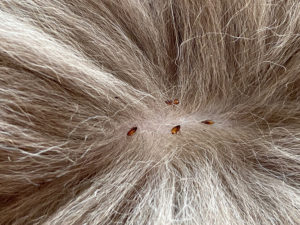Parasites in cats
Parasites. Annoying creatures that many cats have to deal with at some point. One parasite has a limited effect on its host, while another does cause problems. We tell you more about the species, symptoms and treatment. Please read on.
How do cats become infected with a parasite?
Most cats go on regular outdoor adventures. During a walk they not only encounter other cats. Other animals such as birds and mice also wander around. These animals often carry parasites. In addition, parasites from the environment can end up on your four-legged friend. An infection is therefore quickly lurking.
Types of parasites in cats
We distinguish between internal and external parasites. Internal parasites nestle in the body of your cat. Especially toxoplasma gondii and worms are common. External parasites are found in the coat or on the skin of your cat. Think about fleas and ticks. We tell you more about the different species and associated symptoms.
Internal parasites in cats
Toxoplasma gondii is a parasite that lays eggs in the intestines. Often this parasite spreads rapidly through feces and blood. Healthy cats usually do not get any symptoms. Weak and older cats do. Symptoms such as fever, loss of appetite and lethargy indicate that your cat may be infected with this animal. In that case always go to the vet.
Worms are internal parasites that regularly cause problems. Coil and tapeworms are the most common. Symptoms include a swollen belly, frequent vomiting, diarrhea and blood in the stool.
External parasites in cats

Fleas are common in our environment. Usually they are hidden in shady places. This parasite jumps from the environment into your cat’s coat. The symptoms? Heavy scratching, bald spots, constant washing and restlessness.
Ticks may be small; they can have a big impact on your fluffy cat’s health. Especially in the spring and summer months, these critters pop up. They attach themselves to the skin with their heads through the fur. Here they feed on blood. Most cats have no symptoms when they have a tick. Regular checking is therefore not unwise.
The treatment of parasites in a cat
Do you notice that your cat is suffering from the above symptoms, other ailments or unusual behavior? Then it is important to treat your cat. Treatment varies from parasite to parasite. If in doubt, always contact your veterinarian.

– Worms are fought with a cure. These are available in different places, both in the pet store and at the vet. The treatment kills worms but offers no permanent protection. Make sure you deworm your cat with the right frequency.
– Fleas are generally easy to treat. The pesticide is often a spray, pipette or collar. In this case, also make sure you treat all animals in your household and the living environment.
– In most cases ticks are easy to remove yourself. If you are unsure, it is wise to let the veterinarian do it. When this is done in the wrong way, it often leads to infections.
